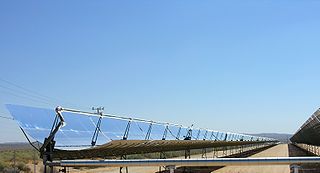From Guest Blogger Emily: Is Solar Power Worth the Investment?

Alternatives
Alternatives to this present themselves in the forms of …
- Nuclear
- Hydro
- Wind
- Solar
With the potential dangers and general unease surrounding nuclear power plants, and the geographical difficulties hydropower plants present, wind and solar power are becoming increasingly popular. Wind power generally comes in the form of a comparatively large-scale commercial enterprise, whereas solar power can be usefully implemented as a personal or small-scale investment, or as a widespread commercial industry. Individual houses and small businesses cannot all be feasibly fitted out with their own windmills, whilst solar paneling can be scaled up or down in size according to need.
The viability of Solar
Is solar power, then, a worthwhile investment on any of these three scales? Is it worthwhile in the short term – which is to say, financially? And is it genuinely worthwhile as a renewable and self-sufficient means of providing power whilst preserving the environment for future generations? Members of individual households and of small businesses must weigh up the initial cost of installing solar paneling with the rising price of commercially supplied electricity. A residence or complex powered by solar, even partially, will see a dramatic drop in their energy bills. Furthermore, various financial incentives for individual households and for businesses, including government solar rebates, feed-in tariffs and tax breaks, are applicable in many developed countries including the USA, the UK and Australia. However, aside from economical foresight, each person’s decision to remove their household or business from a power supply facilitated by burning fossil fuel lessens its demand and the damage done to the environment.
A shift to solar power, or in fact to any renewable energy source, on a national or international scale is generally viewed as something done for the sake of the environment, but at an economic loss. Whilst the initial cost of such a shift might very well be far greater than its short-term profit, the industry would at least be sure to continue in the future, being self-contained rather than dependent on non-replaceable natural reserves of fuel. The commercialisation of renewable energy (solar in particular) on a national scale has been a growing industry in Europe for years, which in recent times has been equaled and even exceeded by the Asian market. Unfortunately, environmental considerations seem so often to fall behind economic ones. Developed nations are responsible for dramatically higher levels of CO2 emissions per capita caused by burning fossil fuels than their developing counterparts, despite being far more able to bear the initial cost of implementing widespread systems for renewable energy. With the financial and technological resources at their disposal, developed nations have the capacity, and the responsibility, to bear the brunt of a short-term financial impact in making provision for long-term economic and environmental stability and sustainability.
Summary
When viewing the issue of sustainable solar power in the broadest possible scope, one thing seems clear. The sun, and the light it emits to Earth, is a limitless resource until it finally implodes, in the event of which humanity will have bigger problems than turning on the TV. It is a readily available resource and promises a future that does not depend on fast-dwindling fuel resources.
